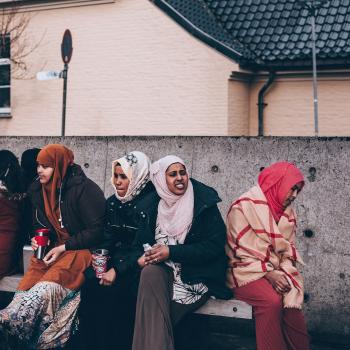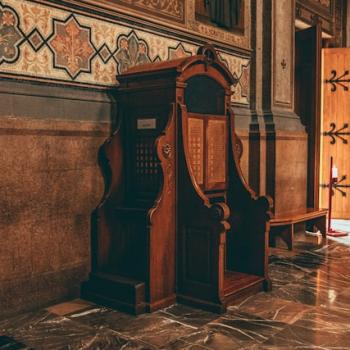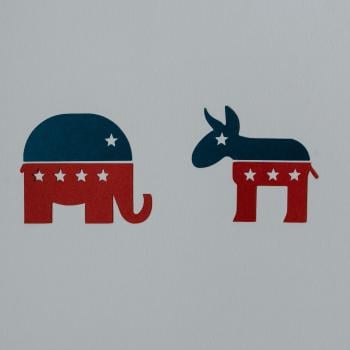
On March 31st, President Joe Biden established Trans Day of Visibility as a national holiday. March 31st this year was also Easter, one of the most sacred Christian holidays of the year.
This decision sparked outrage from many Christians. It was seen as a slight to Christianity. Biden’s decision was seen as proof of how anti-Christian America has become.
Before going on, I absolutely must preface this article. Christians of various sorts, as well as people who do not subscribe to Christianity whatsoever, will inevitably read this article. It is a sensitive topic for various reasons.
On the Christian side, many feel alienated in a country that they believe is no longer a safe haven for Christian faith. The new holiday, to them, seems to threaten Christianity’s place of national prominence. It is also seen as promoting sin in the nation.
For readers who do not subscribe to Christianity, seeing that this article is written by a Christian may be triggering. America has been a safe haven for Christianity since its founding, but American Christianity has not been a safe haven for many Americans.
I will try to write this article to a truly general audience. And I ask readers to set aside their initial premonitions about what this article may be about. My argument here is for Christians to rethink their initial disdain for Trans Day of Visibility. Instead, I am urging Christians to think more lovingly and empathetically towards their trans neighbors, even though they need not change their views on morality.
Trigger Warning: This article may contain sensitive material and includes discussion on suicide.
The Christian View of Transgender Persons
When I write of “the Christian view,” we must know that not all Christians are against “transgenderism.” (A strange term, as if being trans is an ideology.) The Reformation Project, for example, is predicated on LGBTQ+ inclusion in the broader Christian Church. Catholics for Choice is trans affirming. Q Christian also affirms trans identities. (Q Christian defines affirming as “[maintaining] that the gender identities, sexual orientations, and sexual relationships of LGBTQ+ individuals are equally as good and holy in the sight of God as those of cisgender, heterosexual people”).
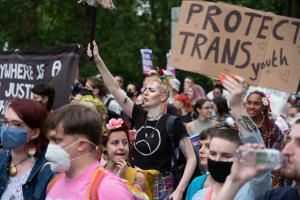
These organizations, however, acknowledge that their religion predominantly does not affirm trans persons. Conservative (I hesitate to say “traditional,” as it may be anachronistic) Christian theology sees trans identities as deviant and sinful.
John MacArthur, a prominent Reformed pastor, illustrates how conservative Christians view transgender people. On YouTube, MacArthur shared a story of how he “accidentally” baptized a transgender woman named Carla.
This rather burly lady came in. . . . [T]he voice sounded strange, and the mannerisms looked strange, and this person [gave a] very brief testimony. And [sic] then I just baptized Carla.
You certainly don’t for a moment think that the Lord Jesus Christ is going to accept you and sanctify your lifestyle as a man living as a woman?
The Emotional Conflict in Conservative Christianity
This article is not nearly long enough to unpack exactly why conservative Christianity is anti-trans. Some might say that this is how Christianity has always been. Others may blame conservative Christianity’s affiliation with political conservatism in the US. But even amongst Christians who are anti-trans, there is often deep emotional conflict between their moral commitments and the Christian obligation of compassion and love.
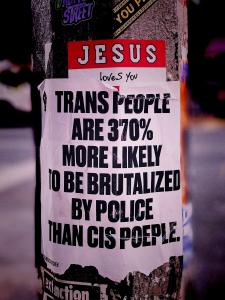
I remember seeing an evangelical Instagram page post a poll on their story in reaction to MacArthur. The question was whether someone would need to detransition in order to become Christian, and whether one must detransition to remain Christian. It sparked a lot of discussion between Christians trying to balance an uncompromising moral objection to trans identity on the one hand, with compassion for one’s neighbor on the other.
The thing to understand about theologically conservative Christians is that they have a strong commitment to their tradition. In an ever-changing world, their faith remains constant throughout generations. But when traditional faith comes into conflict with modern culture, one can become embattled trying to figure out how to be compassionate towards others and also committed towards their faith. This is especially true when their theology actively marginalizes and persecutes people because of their gender identity.
It is this specific group of Christians which I am trying to speak to. Every generation of the Church faces grand issues, and how the Church approaches those issues will define it as faithful or unfaithful. The moral view of transitioning as unnatural or even sinful will not go away from theologically conservative Christianity. But can conservative Christians be compassionate towards their trans neighbors, instead of seeing their very existence as ideological or antagonistic?
Understanding Trans Day of Visibility
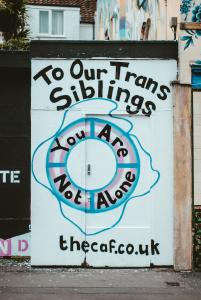
On March 31st, many of the initial reactions against Biden’s decision seemed to presume that Trans Day of Visibility was happening for the first time. Many people had the same reaction towards Juneteenth, though Juneteenth had been celebrated long before it became a national holiday in 2021.
As of 2024, Trans Day of Visibility is 15 years old. This fact alone demonstrates that Biden did not intend to “replace” Easter with an “anti-Christian” holiday. The new holiday is not actually new. Its founder, Rachel Crandall-Crocker, started the holiday because, prior to 2009, the only holiday specifically for transgender people was Transgender Day of Remembrance. This holiday (celebrated November 20), honors those who have lost their lives to anti-trans violence. Crandall-Crocker wanted this holiday to celebrate the lives of trans people, instead of only remembering their losses and suffering.
Though conservative Christians and the trans community might be a far cry away from each other, Trans Day of Visibility shows what they have in common: valuing the sanctity of human life, including trans life.
Why is My Neighbor Dying? The Importance of Listening
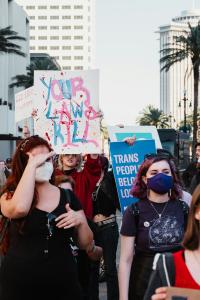
Christians are often ill-equipped to listen to their neighbors. They allow prejudices and theological presumptions to shape their understanding of others, rather than learning about others for who they are. Theology does not have to go away, but it must shape a person’s worldview in combination with building relationships and understanding with the people one shares this life with.
I propose two things that Christians must, if they have not already, listen to. The first is the predicament of transgender people. Especially when it comes to their experiences of Christianity. The second is the obvious fact that trans folks are real people. They are made in the same image of God that everyone else is. They are not objects that further an ideological agenda just by existing.
UCLA’s Williams Institute released a report showing the disparities of health for transgender and cisgender people. (Contrary to what Elon Musk may say, “cisgender” simply refers to a person whose gender matches their sex; it is not a slur. In other words, a cisgender person feels “at home” in their body with no need to transition.) Below is a brief summary of the Institute’s findings.
81% of transgender adults in the U.S. have thought about suicide, 42% of transgender adults have attempted it, and 56% have engaged in non-suicidal self-injury over their lifetimes.
It is a common claim in contrarian and conservative circles that this horrifyingly high risk of suicide and suicidality is due to self-loathing. But this cold-hearted and apathetic claim only does injustice to statistics and individuals’ stories. Rather, transgender people face stigmatization, hatred, violence, and fetishization in harsh and deadly ways.
In family life, children who come out as trans can face homelessness, estrangement, or a sudden withdrawal of financial/familial support. A study on transgender adults published in 2023 showed that “family rejection experiences significantly predict higher likelihood of suicide ideation and attempt.” In other words, though transgender adults face a high risk of considering or attempting suicide even if their family is supportive, being rejected by their family only increases this risk.
Participating in formal religion and holding to unaccepting religious beliefs also increases suicidal thoughts among trans adults, as a study published by the APA finds.
Who is My Neighbor? The Importance of a Consistent Life Ethic
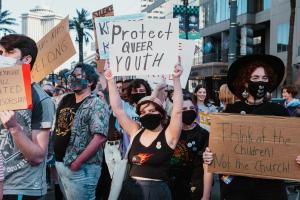
It is well documented that trans people are at higher risk of suicide than folks who are cisgender. And it is intuitive that holding to beliefs that trans identities are sinful will bring about shame on people who have those identities.
Trans Day of Visibility should be a call for Christians to really educate themselves on the dangers that trans people face. In a press statement, Secretary of State Anthony J. Blinken writes that “Transgender persons deserve to live free from violence, discrimination, and stigma. We call on our partners around the globe to join us in fighting for a world in which everyone can live safely and openly as themselves, and where visibility is celebrated and never attacked.”
It is painful seeing so much hatred and disdain of trans people from Christians, just because they are trans. Whether or not transgender persons should suffer from violence, discrimination, or stigma, should not be a partisan issue.
But trans people are not solely defined by their sufferings and losses. This not-so-new national holiday is not about “replacing” Easter. It is about valuing the lives of one’s neighbors, regardless of who they are.
Trans Visibility Day is a life issue, not an anti-Christian ploy.
Conclusion: Easter and Trans Day of Visibility
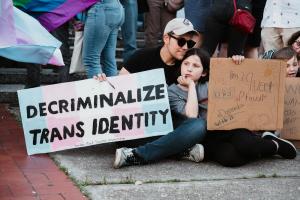
Aside from the fact that Trans Day of Visibility was never meant to replace Easter, I hope that this article leads Christians to think about a few things.
- There is space for there to be multiple holidays on a given day. March 31st, 2024 can be Easter, Ramadan, and Trans Day of Visibility all at once.
- Trans people suffer, not because of “self-loathing,” as some shamefully say. They suffer because they are estranged and even hated by society. Not just by Christians, but by those who hate what they do not understand.
- Trans people are people. For better or worse, conservative Christianity will not change its moral views. But it can change how it shows compassion towards those whose identities it disagrees with.
In closing, I take the liberty to write directly to you, the reader. The following questions may not always remain hypotheticals. If your child told you they were trans, what would you tell them? And if they said they didn’t want to live anymore after telling them that being trans is sinful, what would you say next?
If a trans person wanted to get baptized at your church, would you let them come as they are? If a trans person asked you about Jesus, would you tell them that Jesus died for them, too?
And perhaps the most foundational question: can you show that there is no contradiction between (a) loving your trans neighbors and (b) believing that their identity is sinful?
Other Patheos articles on Trans Day of Visibility
Henry Karlson, “The Spirit Of Easter Is Inclusive Love, Not Hate.”
Carl Gregg, “A New History Of Gender: For Transgender Day Of Visibility.”





